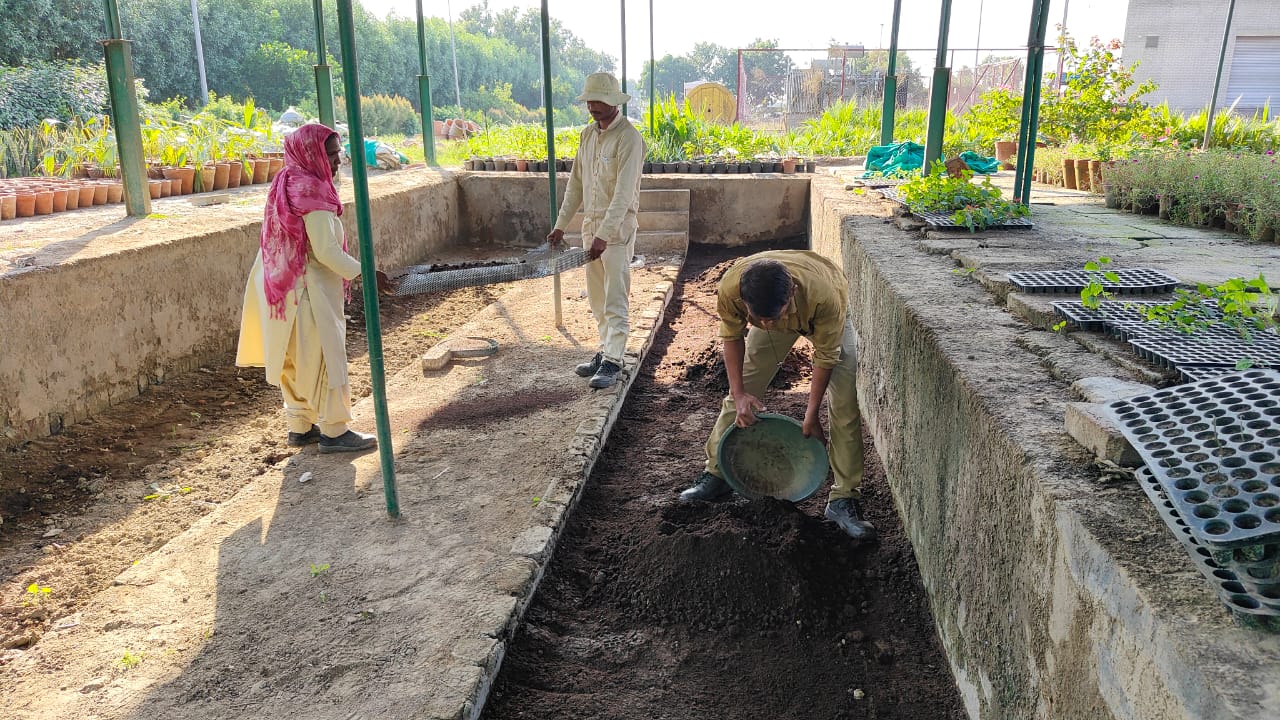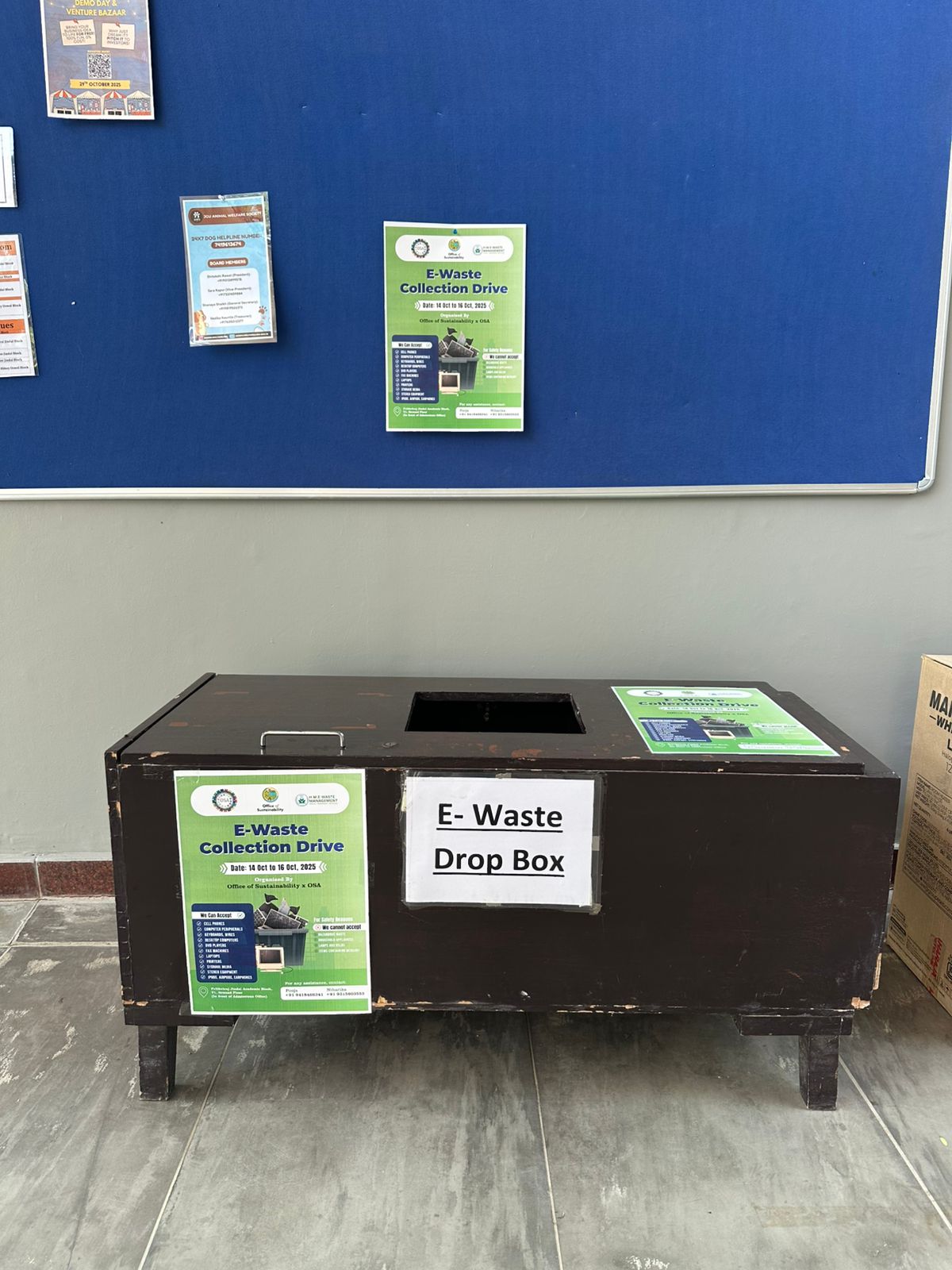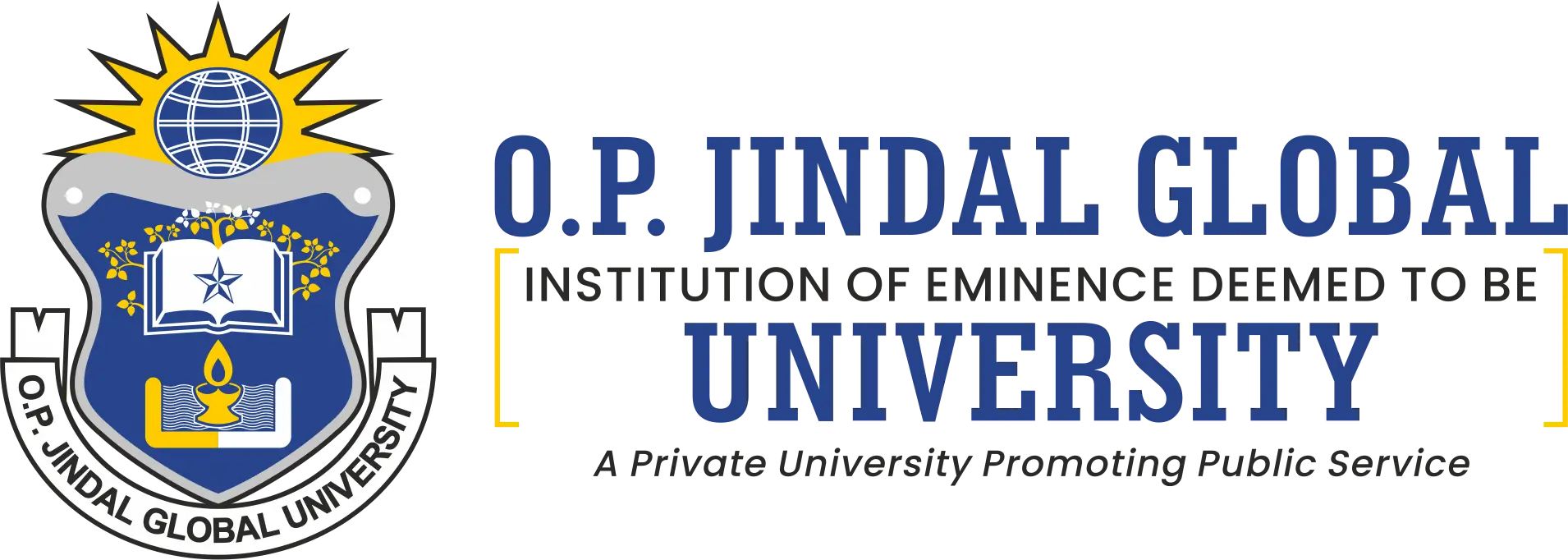Waste sent to landfill
All waste collected in our campus is systematically segregated at source through an extensive range of trio-bins that are situated both indoors and outdoors. In addition to this, we have specialised collection points for hazardous waste, electronic waste and textile waste.
For the waste that cannot be reduced, recycled or composted by us, JGU has partnered with an external agency, JBMEPL – the only registered & authorised agency as advised by Sonipat, MCD – which later dumps and recycles the waste at their own plant nearby.
View MoU for waste collection
View policy
JGU is constantly expanding our facilities to increase circularity and recycle/reuse waste within our campus, leading to the reduction in the volume of waste that is sent to landfill. We have undertaken the following projects for this purpose:
1. Vermicomposting:
The term vermicomposting means the use of earthworms for composting organic residues. Earthworms can consume practically all kinds of organic matter and they can eat their own body weight per day, e.g. 1 kg of worms can consume 1 kg of residues every day. The passage of soil through earthworms promotes the growth of bacteria and actinomycetes. Actinomycetes thrive in the presence of worms and their content in worm casts is more than six times that in the original soil.
JGU’s vermicomposting pit is situated near the Service Block 4.

2. Organic Waste Convertor for Food Waste:
As part of our food waste redacted target, JGU has acquired a cutting-edge Organic Waste Convertor that has the capacity to process 500 kilograms of food waste every day. This provides an odour-free solution to turn organic waste into compost that can be used within our campus in the form of manure.
3. Textile Waste
According to the UN Environment Programme, the fashion industry is the second-biggest consumer of water and is responsible for about 10% of global carbon emissions – more than all international flights and maritime shipping combined. It takes 2,700 litres of water to make a single cotton shirt, and 1 garbage truck of clothes are burned or landfilled every second. The Office of Sustainability hosts collection drives at regular intervals to facilitate the recycling and upcycling of clothes discarded by our community, promoting a circular economy.
4. Electronic Waste
Along with a permanent collection bin for e-waste accessible to our community, we host awareness and collection drives at regular intervals.






